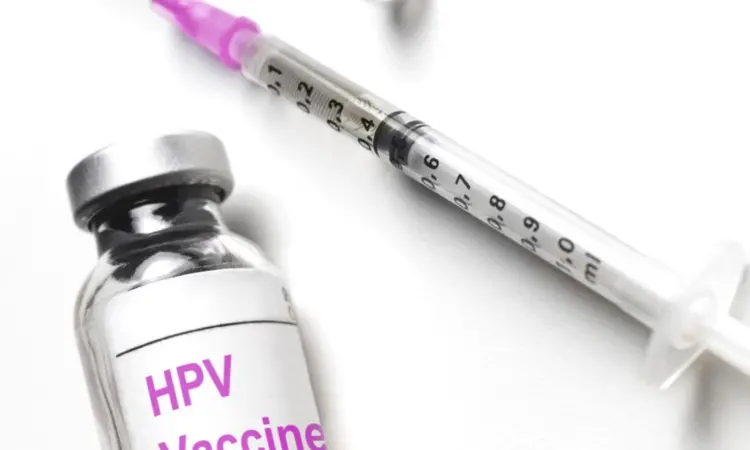- Home
- Medical news & Guidelines
- Anesthesiology
- Cardiology and CTVS
- Critical Care
- Dentistry
- Dermatology
- Diabetes and Endocrinology
- ENT
- Gastroenterology
- Medicine
- Nephrology
- Neurology
- Obstretics-Gynaecology
- Oncology
- Ophthalmology
- Orthopaedics
- Pediatrics-Neonatology
- Psychiatry
- Pulmonology
- Radiology
- Surgery
- Urology
- Laboratory Medicine
- Diet
- Nursing
- Paramedical
- Physiotherapy
- Health news
- Fact Check
- Bone Health Fact Check
- Brain Health Fact Check
- Cancer Related Fact Check
- Child Care Fact Check
- Dental and oral health fact check
- Diabetes and metabolic health fact check
- Diet and Nutrition Fact Check
- Eye and ENT Care Fact Check
- Fitness fact check
- Gut health fact check
- Heart health fact check
- Kidney health fact check
- Medical education fact check
- Men's health fact check
- Respiratory fact check
- Skin and hair care fact check
- Vaccine and Immunization fact check
- Women's health fact check
- AYUSH
- State News
- Andaman and Nicobar Islands
- Andhra Pradesh
- Arunachal Pradesh
- Assam
- Bihar
- Chandigarh
- Chattisgarh
- Dadra and Nagar Haveli
- Daman and Diu
- Delhi
- Goa
- Gujarat
- Haryana
- Himachal Pradesh
- Jammu & Kashmir
- Jharkhand
- Karnataka
- Kerala
- Ladakh
- Lakshadweep
- Madhya Pradesh
- Maharashtra
- Manipur
- Meghalaya
- Mizoram
- Nagaland
- Odisha
- Puducherry
- Punjab
- Rajasthan
- Sikkim
- Tamil Nadu
- Telangana
- Tripura
- Uttar Pradesh
- Uttrakhand
- West Bengal
- Medical Education
- Industry
Menstrual pad method clinically effective for testing of HPV: Study

USA: A new study by Sara Naseri and colleagues, published in the journal Obstetrics and Gynecology shows that the findings from the menstrual pad among women who tested positive for HPV were quite consistent when compared to clinician-collected samples.
Worldwide, cervical cancer is the second most frequent disease in women and the fourth most common cancer overall. The majority of occurrences of cervical cancer can be avoided by combining primary prevention, screening, and access to precancerous lesion therapy that is suitable. The Q-Pad® (QvinTM, Menlo Park, CA) is a customized menstruation pad with a dried blood spot strip made of paper that makes it easy to collect and stabilize menstrual blood samples.
This investigation was prospective and observational. Women presenting for either cervical cancer screening or with a history of high-risk HPV positive were eligible. Participants were asked to provide three samples: self-collected vaginal swabs, modified menstrual pads to be used at home for the next period, and cervical specimens obtained by a doctor. The Cobas HPV test was used to analyze all samples. Blood stains that had dried on menstrual pads were rinsed and then treated identically.
The key highlights of this study were:
1. 106 of the 153 women enrolled in the study provided menstrual pad samples and cervical specimens for high-risk HPV analysis.
2. The concordance was 94% for samples where the interval between the clinician-collected specimen and the menstrual pad sample was less than 2 months.
3. Menstrual pad and clinician-collected specimen agreement was 100% for women who tested positive for high-risk HPV and presented for general screening, as well as those with more than cervical intraepithelial neoplasia 2. 22.9% of participants were uncomfortable with the self-collected vaginal swabs and chose not to collect them.
4. The menstrual pad was preferred over clinician-collected sampling by 94.0% of participants overall.
5. The menstruation pad sample from 12 women tested positive for HPV, but the clinician-collected specimen came back negative.
In conclusion, other vitally significant biomarkers, such as those for ovarian, endometrial, and other malignancies, as well as sexually transmitted diseases, may also be included in the prospective uses of this collecting strategy. Therefore, it has the potential to be employed in both high-resource and low-resource contexts for highly customized, self-collected screening for a range of conditions of public health concern.
"This collection approach shows promise for incorporation into cervical cancer prevention programs," the researchers wrote.
Reference:
Naseri, S., Young, S., Cruz, G., & Blumenthal, P. D. (2022). Screening for High-Risk Human Papillomavirus Using Passive, Self-Collected Menstrual Blood. In Obstetrics & Gynecology (Vol. 140, Issue 3, pp. 470–476). Ovid Technologies (Wolters Kluwer Health). https://doi.org/10.1097/aog.0000000000004904
Neuroscience Masters graduate
Jacinthlyn Sylvia, a Neuroscience Master's graduate from Chennai has worked extensively in deciphering the neurobiology of cognition and motor control in aging. She also has spread-out exposure to Neurosurgery from her Bachelor’s. She is currently involved in active Neuro-Oncology research. She is an upcoming neuroscientist with a fiery passion for writing. Her news cover at Medical Dialogues feature recent discoveries and updates from the healthcare and biomedical research fields. She can be reached at editorial@medicaldialogues.in
Dr Kamal Kant Kohli-MBBS, DTCD- a chest specialist with more than 30 years of practice and a flair for writing clinical articles, Dr Kamal Kant Kohli joined Medical Dialogues as a Chief Editor of Medical News. Besides writing articles, as an editor, he proofreads and verifies all the medical content published on Medical Dialogues including those coming from journals, studies,medical conferences,guidelines etc. Email: drkohli@medicaldialogues.in. Contact no. 011-43720751


